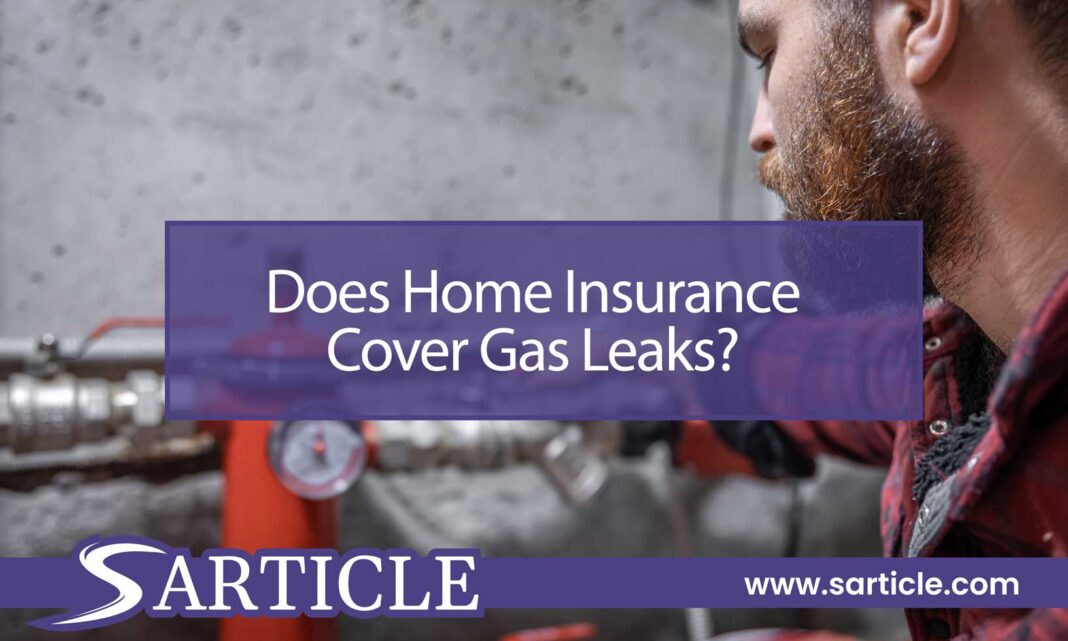In this in-depth guide, we will explore does home insurance cover gas leaks, its limitations, and steps to ensure safety.
Gas leaks can be hazardous and potentially life-threatening, causing harm to both property and occupants. With the safety of our homes being paramount, it’s essential to understand whether home insurance policies provide coverage for gas leaks.
The Dangers of Gas Leaks
Before delving into insurance coverage, let’s understand the gravity of gas leaks. Gas leaks, often caused by faulty appliances, damaged pipes, or improper installations, can lead to carbon monoxide poisoning, fire hazards, and even explosions. Early detection and immediate action are crucial in preventing potential disasters.
Does Home Insurance Cover Gas Leaks?
Unfortunately, standard home insurance policies do not universally cover gas leaks. Most policies exclude damage or accidents related to gas leaks from their coverage. However, there might be exceptions based on the type of policy and insurance provider.
The Importance of Specialized Gas Leak Coverage
Due to the exclusion of gas leaks from standard policies, homeowners must consider additional specialized coverage options. A separate endorsement or rider may be available from some insurance providers to include gas leaks in the policy, offering peace of mind and added protection.
Types of Gas Leak Coverage
When exploring specialized gas leak coverage, homeowners should be aware of two main types:
Gas Leak Liability Coverage
Gas leak liability coverage focuses on damages caused to others, including neighboring properties, by a gas leak originating from your home. This type of coverage may offer financial assistance in legal matters and medical expenses for affected individuals.
Read more: Does Home Insurance Cover Locksmith?
Gas Leak Property Coverage
Gas leak property coverage, on the other hand, is designed to protect your own property and belongings. This includes repairing gas-related damage to your home, appliances, and personal possessions.
Factors Influencing Coverage Eligibility
To be eligible for gas leak coverage, several factors come into play:
Home Inspection
Insurance providers may require a home inspection to assess existing gas-related risks before offering specialized coverage. Ensuring proper installation and maintenance of gas lines can positively impact your eligibility.
Type of Gas Used
The type of gas used in your home (natural gas or propane) can also influence the availability of coverage options. Propane may have different requirements or limitations compared to natural gas.
Geographic Location
Properties located in regions with higher risks of natural disasters or geological issues might face different coverage considerations due to the potential increased risk of gas leaks.
Preventative Measures to Reduce Gas Leak Risks
Taking proactive steps to prevent gas leaks can not only enhance your safety but may also make you more eligible for specialized coverage:
Regular Maintenance
Schedule regular inspections and maintenance of gas lines, appliances, and heating systems. Timely detection and resolution of potential issues can mitigate the risk of gas leaks.
Carbon Monoxide Detectors
Install carbon monoxide detectors throughout your home to provide early warnings in case of gas leaks. These detectors can save lives by alerting you to dangerous gas levels.
Professional Installations
Hire qualified professionals for the installation and servicing of gas appliances. DIY installations can increase the risk of leaks and void insurance coverage.
Conclusion
While standard home insurance policies may not typically cover gas leaks, homeowners should explore specialized coverage options to protect their property and loved ones from potential hazards. Regular maintenance, professional installations, and early detection are essential in preventing gas leaks. Remember, the safety of your home and family should always be a top priority.
FAQs
Are gas leaks common in homes?
Gas leaks are not common in properly maintained homes. However, faulty appliances, aging pipes, or incorrect installations can increase the risk.
Does renters' insurance cover gas leaks?
Renters’ insurance often excludes gas leak coverage as well. Tenants should check their policy or inquire about specialized endorsements.
What should I do if I suspect a gas leak?
If you smell gas or suspect a leak, leave the premises immediately, avoid using electrical devices, and call the gas company or emergency services.
Can I perform gas line repairs myself?
Gas line repairs should only be done by licensed professionals to ensure safety and compliance with regulations.
Can I add gas leak coverage to my existing home insurance policy?
Yes, many insurance providers offer endorsements or riders that allow homeowners to add gas leak coverage to their existing policies.


